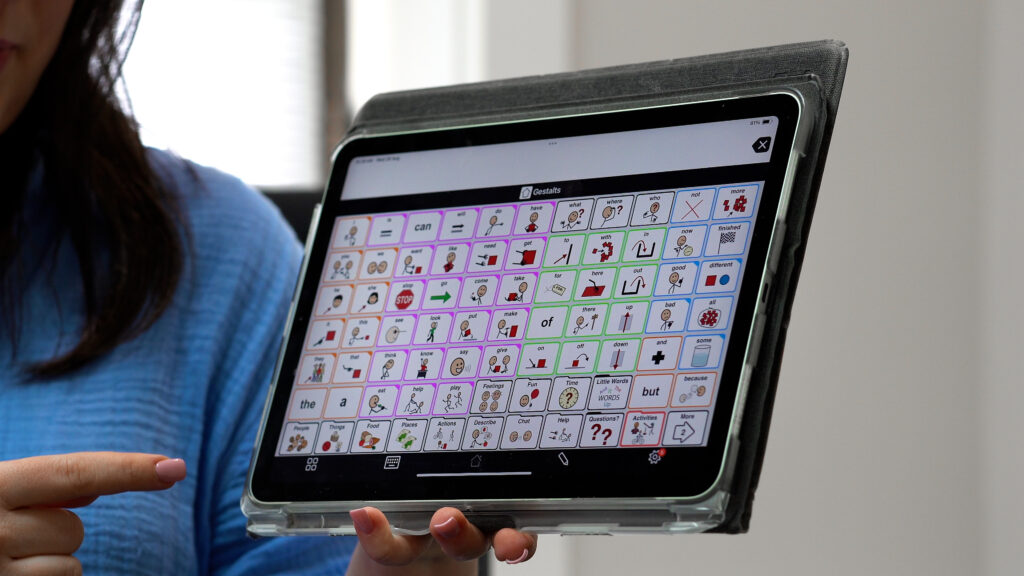
AAC Devices
An Introduction to Augmentative and Alternative Communication (AAC)
Explore the functionalities and benefits of AAC devices, common misconceptions, and the importance of promoting effective communication among children.


We have compiled a range of information to help you manage sensory difficulties or behavioural challenges. If you’re looking for tailored advice, proven strategies, or family-centred therapy, our team is here to help. Contact us today and take the first step toward a brighter future for your child!

Explore the functionalities and benefits of AAC devices, common misconceptions, and the importance of promoting effective communication among children.

Playtime is vital in shaping your child’s mind and nurturing their creativity. For neurodiverse children play is particularly important as it helps them develop essential social, emotional, and cognitive skills.
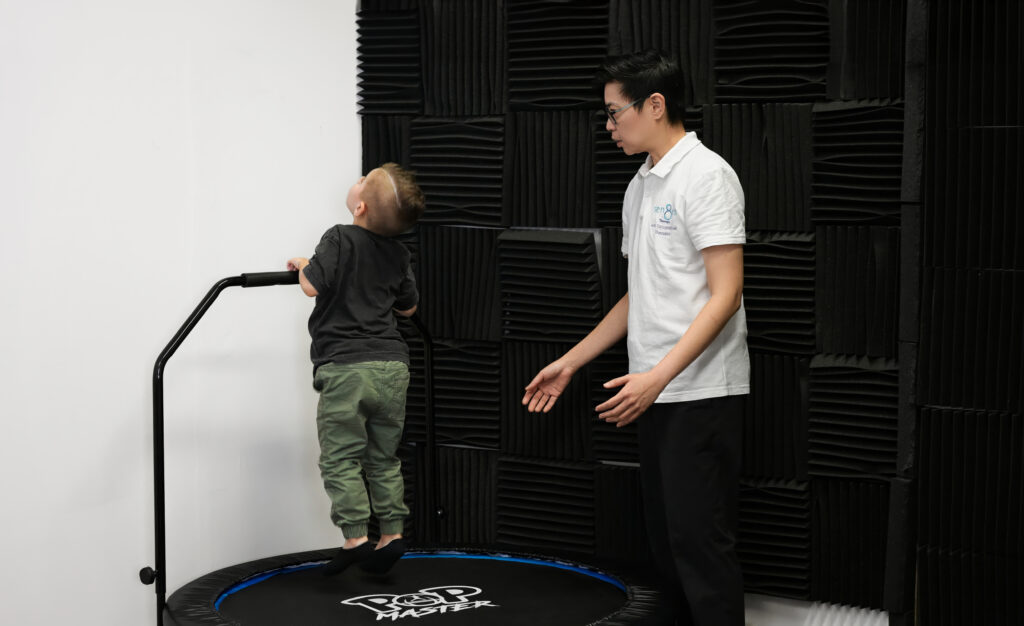
If your child seems to thrive on jumping, bumping, and crashing into things, they may be seeking proprioceptive input—a crucial aspect of their sensory development.

Meltdowns are often triggered by emotions or situations that children find overwhelming. Preventing meltdowns can be challenging but, by understanding the cues and underlying triggers, parents and teachers can use strategies to mitigate them.
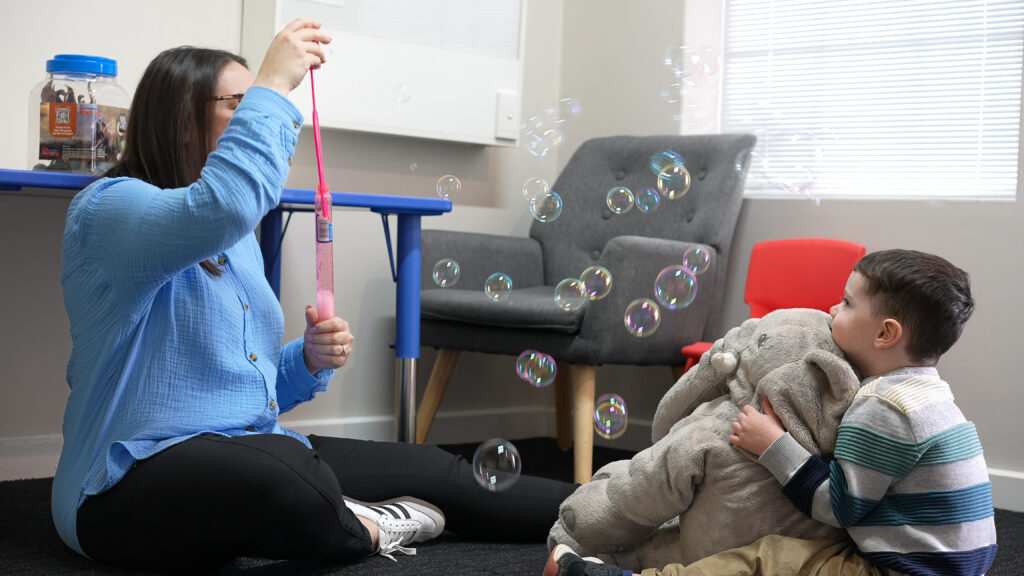
Communication is an essential pillar in your child’s development. It’s the cornerstone of how they express their needs, share their thoughts, and interact with the people and world around them.
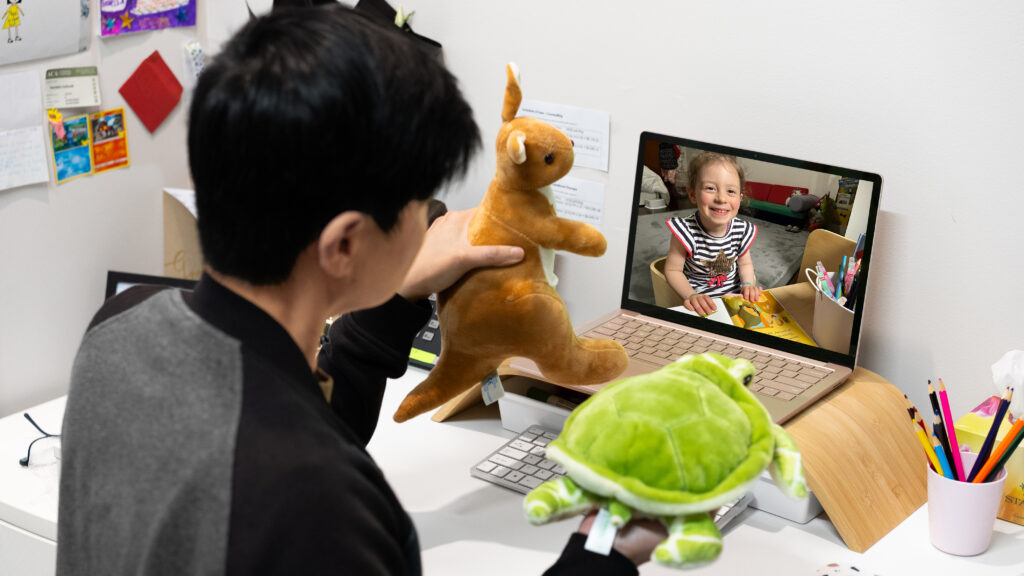
We understand the challenge of balancing your children’s needs, school, work, and the long travel times for therapy appointments. Our new Telehealth service aims to make occupational therapy easily accessible – wherever you may be!
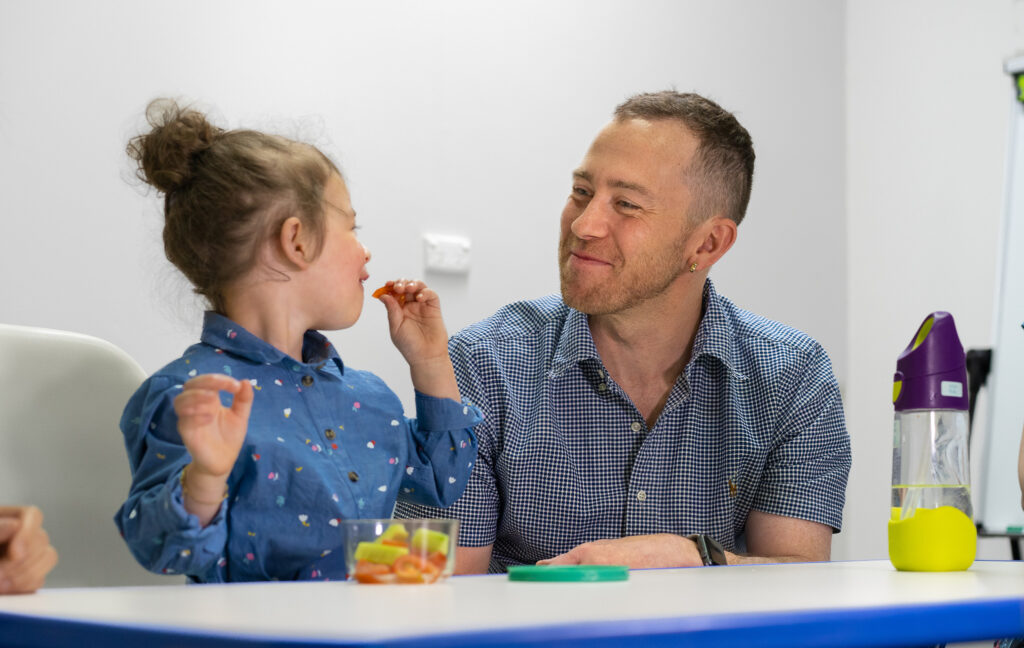
Emotional regulation is a crucial skill that children learn and develop over time, enabling them to manage, cope, and respond to emotional experiences appropriately.
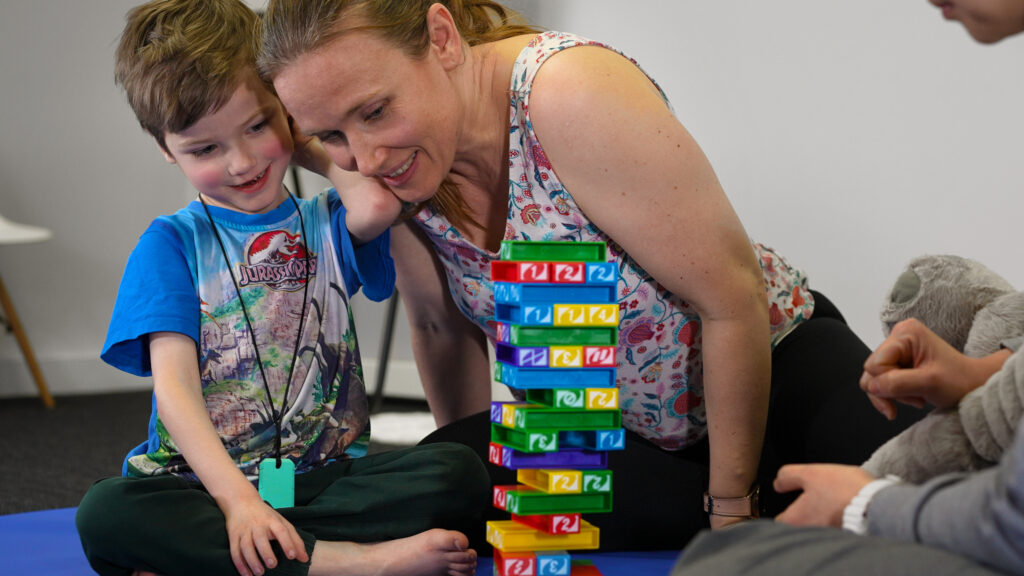
Hear from Cassie, who has first-hand experience in supporting her autistic son, Ashy. Their inspiring story provides valuable insights into the benefits of family-centred therapy.

Whether you’re a new graduate or an experienced therapist, we are there to help you grow as an OT and take your career to new heights.

Raising your child to be independent and capable is one of the most important tasks for any parent. Teaching your child to take on responsibility in their lives from a young age will help them develop into confident, successful adults.

Educators must be mindful of over-stimulation in our learning spaces. Studies have shown that sparsely decorated classrooms can lead to a 13% increase in children’s test accuracy, along with a 10% reduction in distractions.

Proprioception plays a pivotal role in a child’s development, giving them a sense of their body’s position and movement. It impacts crucial areas like their ability to focus, self-regulate, speak clearly, and maintain good posture.

Understanding the difference between Sensory Processing Difficulties (SPD) and behavioural issues in children can contribute to effective parenting, caregiving, and education.

Sensory Processing Disorder (SPD) is not caused due to illness or injury. It is a condition that exists from early childhood and, if left unaddressed, it can lead to a variety of problems.

In today’s world, it’s almost impossible for children to avoid digital devices. Parents are now faced with the difficult challenge of ensuring their child spends the appropriate amount of time on these devices.

Professional Supervision is an important part of a career in occupational therapy. It helps both inexperienced and experienced therapists develop necessary skills, knowledge, and confidence to provide the highest-quality care possible.

As a parent, you can be your child’s superhero by supporting their development in meaningful ways. We will provide you with eight proven strategies that can be used to support your child at home.

As parents, one of the most important things we can do for our children is to help them develop strong social skills. This will assist them in making friends, building relationships, and is essential for their confidence, self-esteem, happiness, and well-being.

Visual supports, such as picture schedules, cue cards, and visual timers, can significantly aid neurodiverse children. These tools help in understanding routines, transitioning between activities, and providing clear, visual instructions.
Fill out one of our contact forms and our admin team will get in touch with you as soon as possible.


We have compiled a range of information to help you manage sensory difficulties or behavioural challenges. If you’re looking for tailored advice, proven strategies, or family-centred therapy, our team is here to help. Contact us today and take the first step toward a brighter future for your child!
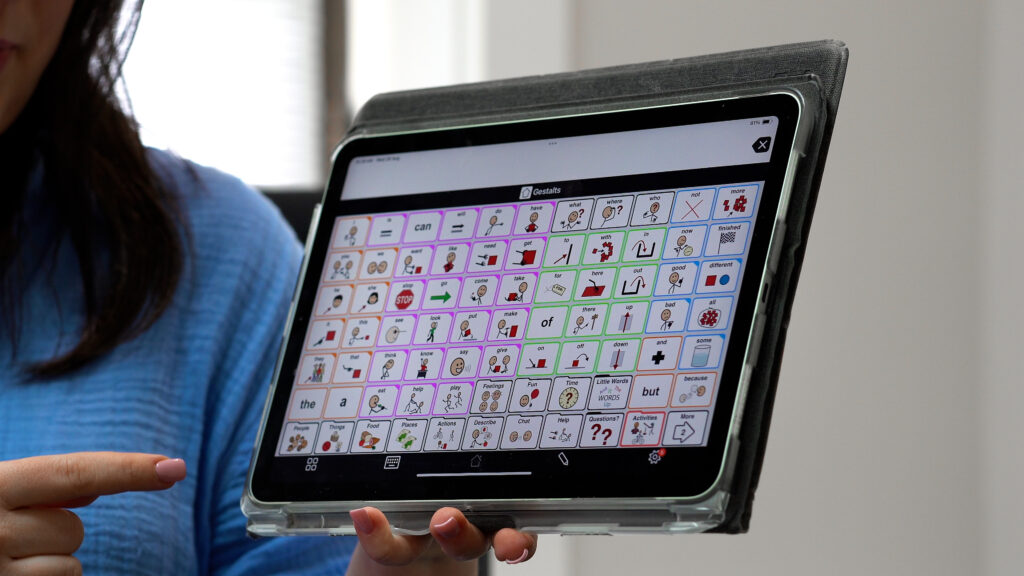
Explore the functionalities and benefits of AAC devices, common misconceptions, and the importance of promoting effective communication among children.

Playtime is vital in shaping your child’s mind and nurturing their creativity. For neurodiverse children play is particularly important as it helps them develop essential social, emotional, and cognitive skills.

If your child seems to thrive on jumping, bumping, and crashing into things, they may be seeking proprioceptive input—a crucial aspect of their sensory development.

Meltdowns are often triggered by emotions or situations that children find overwhelming. Preventing meltdowns can be challenging but, by understanding the cues and underlying triggers, parents and teachers can use strategies to mitigate them.

Communication is an essential pillar in your child’s development. It’s the cornerstone of how they express their needs, share their thoughts, and interact with the people and world around them.

We understand the challenge of balancing your children’s needs, school, work, and the long travel times for therapy appointments. Our new Telehealth service aims to make occupational therapy easily accessible – wherever you may be!

Emotional regulation is a crucial skill that children learn and develop over time, enabling them to manage, cope, and respond to emotional experiences appropriately.

Hear from Cassie, who has first-hand experience in supporting her autistic son, Ashy. Their inspiring story provides valuable insights into the benefits of family-centred therapy.
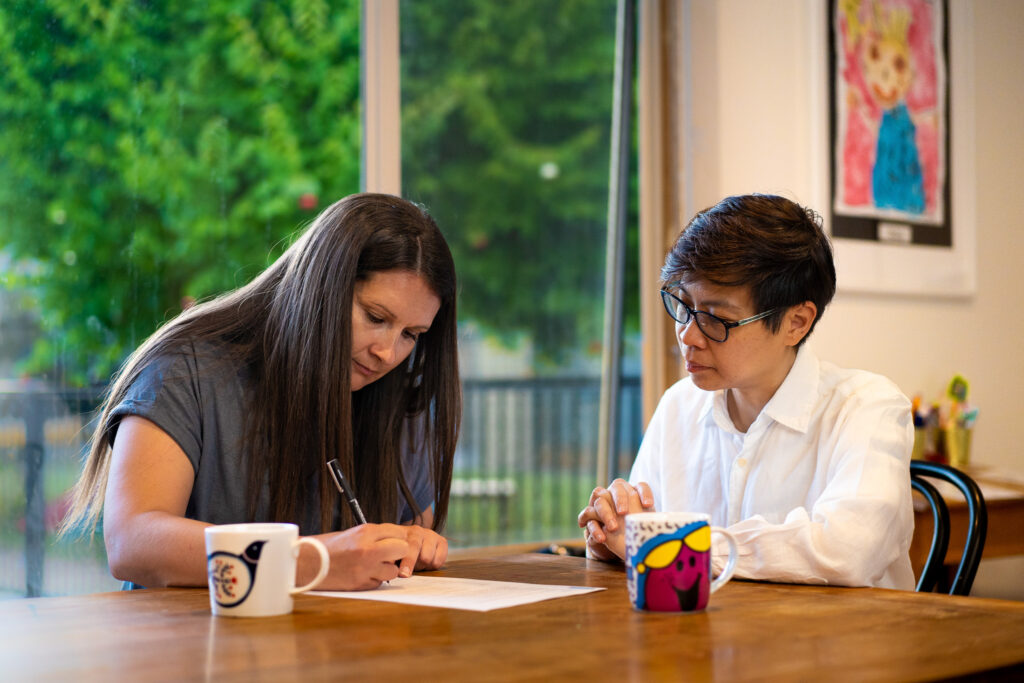
Whether you’re a new graduate or an experienced therapist, we are there to help you grow as an OT and take your career to new heights.

Raising your child to be independent and capable is one of the most important tasks for any parent. Teaching your child to take on responsibility in their lives from a young age will help them develop into confident, successful adults.

Educators must be mindful of over-stimulation in our learning spaces. Studies have shown that sparsely decorated classrooms can lead to a 13% increase in children’s test accuracy, along with a 10% reduction in distractions.

Proprioception plays a pivotal role in a child’s development, giving them a sense of their body’s position and movement. It impacts crucial areas like their ability to focus, self-regulate, speak clearly, and maintain good posture.

Understanding the difference between Sensory Processing Difficulties (SPD) and behavioural issues in children can contribute to effective parenting, caregiving, and education.

Sensory Processing Disorder (SPD) is not caused due to illness or injury. It is a condition that exists from early childhood and, if left unaddressed, it can lead to a variety of problems.

In today’s world, it’s almost impossible for children to avoid digital devices. Parents are now faced with the difficult challenge of ensuring their child spends the appropriate amount of time on these devices.

Professional Supervision is an important part of a career in occupational therapy. It helps both inexperienced and experienced therapists develop necessary skills, knowledge, and confidence to provide the highest-quality care possible.

As a parent, you can be your child’s superhero by supporting their development in meaningful ways. We will provide you with eight proven strategies that can be used to support your child at home.

As parents, one of the most important things we can do for our children is to help them develop strong social skills. This will assist them in making friends, building relationships, and is essential for their confidence, self-esteem, happiness, and well-being.

Visual supports, such as picture schedules, cue cards, and visual timers, can significantly aid neurodiverse children. These tools help in understanding routines, transitioning between activities, and providing clear, visual instructions.
Fill out one of our simple online contact forms and our admin team will get in touch with you as soon as possible!


We have compiled a range of information to help you manage sensory difficulties or behavioural challenges. If you’re looking for tailored advice, proven strategies, or family-centred therapy, our team is here to help. Contact us and take the first step toward a brighter future for your child!

Explore the functionalities and benefits of AAC devices, common misconceptions, and the importance of promoting effective communication among children.

Playtime is vital in shaping your child’s mind and nurturing their creativity. For neurodiverse children play is particularly important as it helps them develop essential social, emotional, and cognitive skills.

If your child seems to thrive on jumping, bumping, and crashing into things, they may be seeking proprioceptive input—a crucial aspect of their sensory development.

Meltdowns are often triggered by emotions or situations that children find overwhelming. Preventing meltdowns can be challenging but, by understanding the cues and underlying triggers, parents and teachers can use strategies to mitigate them.

Communication is an essential pillar in your child’s development. It’s the cornerstone of how they express their needs, share their thoughts, and interact with the people and world around them.

We understand the challenge of balancing your children’s needs, school, work, and the long travel times for therapy appointments. Our new Telehealth service aims to make occupational therapy easily accessible – wherever you may be!

Emotional regulation is a crucial skill that children learn and develop over time, enabling them to manage, cope, and respond to emotional experiences appropriately.

Hear from Cassie, who has first-hand experience in supporting her autistic son, Ashy. Their inspiring story provides valuable insights into the benefits of family-centred therapy.

Whether you’re a new graduate or an experienced therapist, we are there to help you grow as an OT and take your career to new heights.

Raising your child to be independent and capable is one of the most important tasks for any parent. Teaching your child to take on responsibility in their lives from a young age will help them develop into confident, successful adults.

Educators must be mindful of over-stimulation in our learning spaces. Studies have shown that sparsely decorated classrooms can lead to a 13% increase in children’s test accuracy, along with a 10% reduction in distractions.

Proprioception plays a pivotal role in a child’s development, giving them a sense of their body’s position and movement. It impacts crucial areas like their ability to focus, self-regulate, speak clearly, and maintain good posture.

Understanding the difference between Sensory Processing Difficulties (SPD) and behavioural issues in children can contribute to effective parenting, caregiving, and education.

Sensory Processing Disorder (SPD) is not caused due to illness or injury. It is a condition that exists from early childhood and, if left unaddressed, it can lead to a variety of problems.

In today’s world, it’s almost impossible for children to avoid digital devices. Parents are now faced with the difficult challenge of ensuring their child spends the appropriate amount of time on these devices.

Professional Supervision is an important part of a career in occupational therapy. It helps both inexperienced and experienced therapists develop necessary skills, knowledge, and confidence to provide the highest-quality care possible.

As a parent, you can be your child’s superhero by supporting their development in meaningful ways. We will provide you with eight proven strategies that can be used to support your child at home.

As parents, one of the most important things we can do for our children is to help them develop strong social skills. This will assist them in making friends, building relationships, and is essential for their confidence, self-esteem, happiness, and well-being.

Visual supports, such as picture schedules, cue cards, and visual timers, can significantly aid neurodiverse children. These tools help in understanding routines, transitioning between activities, and providing clear, visual instructions.
Fill out one of our simple online contact forms and our admin team will get in touch with you as soon as possible!
